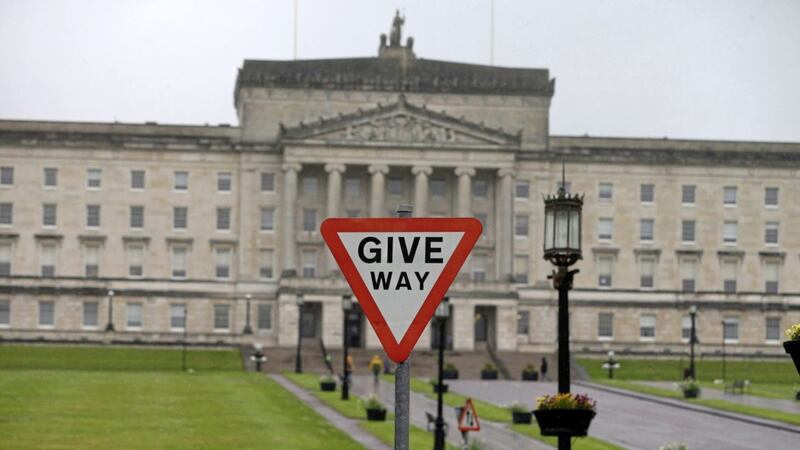It is generally accepted in the annals of nationalist wisdom that in failing to form an executive, the DUP is preventing a tidal wave of social and economic progress.
Unionist abstention, say nationalists, is blocking Stormont from tackling hospital waiting lists, kick-starting the economy, and “putting money in people’s pockets”.
However, a closer analysis of Stormont’s record suggests that whether the assembly re-convenes or not, the chances of a golden era of health and wealth are pretty slim. That is not to suggest that the DUP should boycott Stormont. It merely argues that it matters little what they do.
Stormont cannot resolve the plight of its people because it is not designed to solve anything. It has been devised as a talking shop for the constitutionally obsessed. So it generates problems, not solutions.
This is because of its undemocratic structures and systems (government parties claim to hold each other to account) and because of its political culture, which is based on twisting any subject or situation to gain an advantage over your sectarian opponents.
So social and economic problems become opportunities, not to solve them, but to use them to attack opponents, leaving the problems untouched. Take hospital waiting lists as an example.
Sinn Féin says the time to tackle waiting lists is now, thereby using a problem to attack the DUP for its parliamentary absence. SF does not mention that since it walked away from the health ministry in 2017, hospital outpatients waiting for a first appointment rose from 250,000 to 350,000, in four years.
Of course, the DUP makes that point, but it fails to recognise that there were three DUP health ministers from 2014 to 2017, (Poots, Wells and Hamilton) and waiting lists continued to rise.
Even earlier, the same pattern emerged. In 2000, Sinn Féin health minister, Bairbre de Brún, pledged to deal with what she called the north’s “concerning” rising waiting lists, the longest in the UK. In her two years, those waiting for in-patient treatment rose from 47,000 to 60,000.
While Paisley and McGuinness chuckled in 2007, their parties left the health ministry to the UUP’s Michael McGimpsey. He was attacked by the major parties, which he later described as, “very personal, very vicious, nasty, uncharitable, not Christian.”
There is a long and putrid history of political negligence running alongside rising waiting lists.
An assembly research paper on waiting lists in December concluded that “targets for a first outpatient appointment and for inpatient treatment have rarely been met since 2009.” So if Stormont has achieved nothing for 13 years, how will it suddenly transform anything?
The health department refused to disclose to the report’s authors how much money has been spent addressing waiting lists, thereby avoiding scrutiny on how effectively, and where, money was spent.
Since 2016 Stormont has produced a health plan or policy annually, none of which achieved anything. The report says the reasons for growing waiting lists include: over-reliance on short-term funding, staff recruitment and retention, poor accountability (in the public sector - really?), a lack of strategic planning and published data, centralised power structures and political blockages.
Stormont’s political lifestyle has created administrative obesity in the health service.
So as MLAs are once again paid for doing nothing beyond pathetic finger-pointing, the DUP utter the same words which Sinn Féin used to justify their assembly absence in 2017. Same blame game, different speakers and same old stunt politics.
Until we get a new system of government, our health service will continue to deteriorate. But the major parties (including the DUP) tell us that Stormont, which caused the problem, is really the solution. It represents an interesting approach to medicine.
Waiting lists are a direct result of Stormont’s political infections. Only when that political malaise is cured can we expect our waiting lists to fall. In the meantime, Stormont’s parties will continue to do grandstanding rather than government and that’s not a cure for anything.









